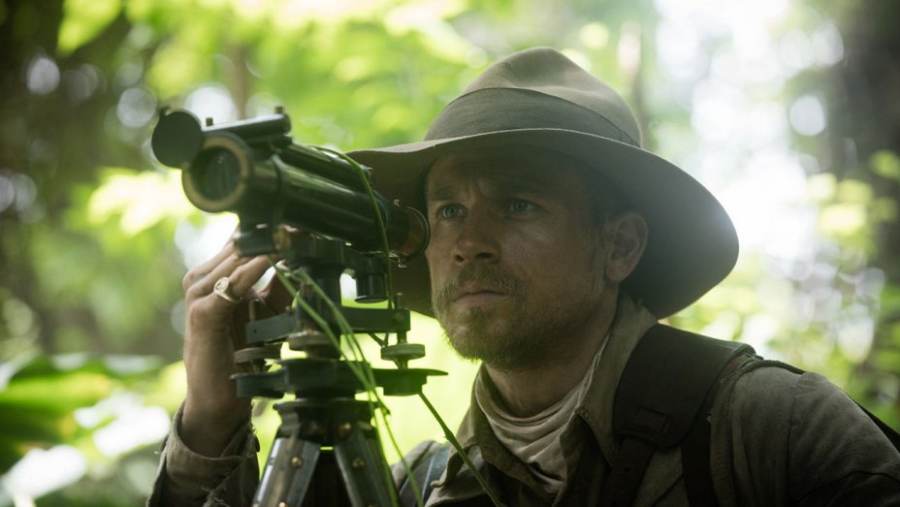

The Lost City of Z is James Grey’s entry into the cinematic tradition of obsessive adventurer movies. Based on the real-life expeditionist of the early 20th century, Percy Fawcett (Charlie Hunnam), Grey’s approach is characteristically subtle. This isn’t the crazed, monomaniac fable, but it doesn’t ignore the toll that lifelong adventuring takes either. Yet even where it is mildly censorious to the hero, the movie does feel uncomfortably unselfaware for a story of a British man who is obsessed with exotic exploration. Grey avoids the harder questions that a figure such as Fawcett poses, favoring light spiritualism and heart-tugging historical vindication instead.
The movie opens with Fawcett as an impressive specimen of a British soldier, stunted in his career by a disgraced father. He accepts a mission to South America to do some land surveying in hopes it will give his career a needed boost. He leaves his wife (Sienna Miller) with whom he shares a loving partnership and infant child to go for his first dip in the Amazonian jungle. With this backstory, whose every element is somehow tied to the hierarchical qualities of paternalism — from Fawcett’s unseen disgraced father to the theatrically patriarchal structure of the military — it doesn’t seem unreasonable to think some of it will fray in the Amazon’s ripe air.
This is one of several set-ups that will dissolve anemically. Another comes in his traveling companion, Henry Costin (Robert Pattinson), who seems to have been included in the story to play the intrepid, sometimes-alcoholic swashbuckler opposite of Hunnam’s beautiful, blond decency. But Pattinson is too muted to pull this off, and their quiet, manly companionship is believable if largely unmobilized for any greater narrative purpose.
More important than unrealized potential in this story is the narrative’s position on Fawcett’s project. Fawcett is convinced that there is evidence of an ancient civilization in the Amazon, and he is presented as a free-thinking voice up against the stuffed shirts in the Geographical Society who insist that this lesser culture could not have had any great, lost civilization. Nary a second is spent even suggesting that Fawcett, too, is part of an oppressive, colonial tradition — even if he is the “good” kind. On top of that, his heroism is based on the fact that he, as an Englishman, justifies these people’s value based on perceived similarities to European civilization. Do we need to lionize him?
The movie is perhaps most interesting in its domestic drama. Hunnam plays a preoccupied and ever-absent father. His distance and occasional cruelty are the only elements of this tale of the late British Empire that ring true. The father figure serves as the best and most basic symbol of the oppressive patriarchal system. Grey’s gift for lighting and photographing interior scenes further elevate the England scenes above the Amazon ones. You leave feeling Grey’s ambition, like Fawcett’s, is misplaced, and he could have accomplished a lot more staying small, looking inward.